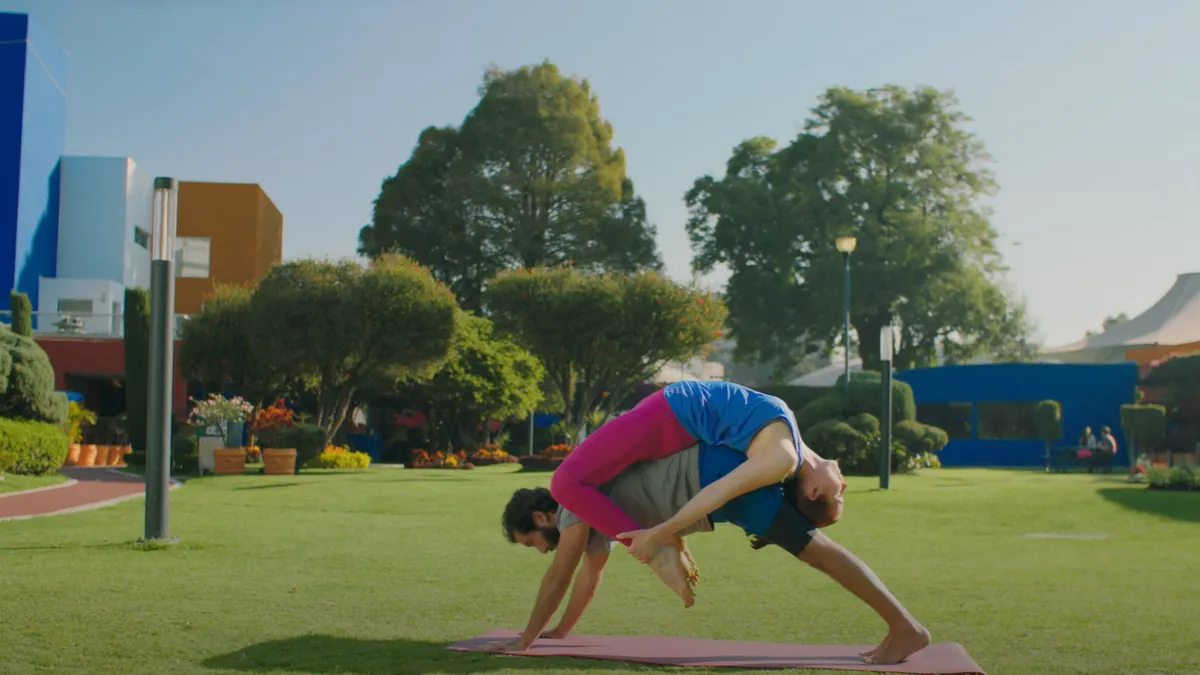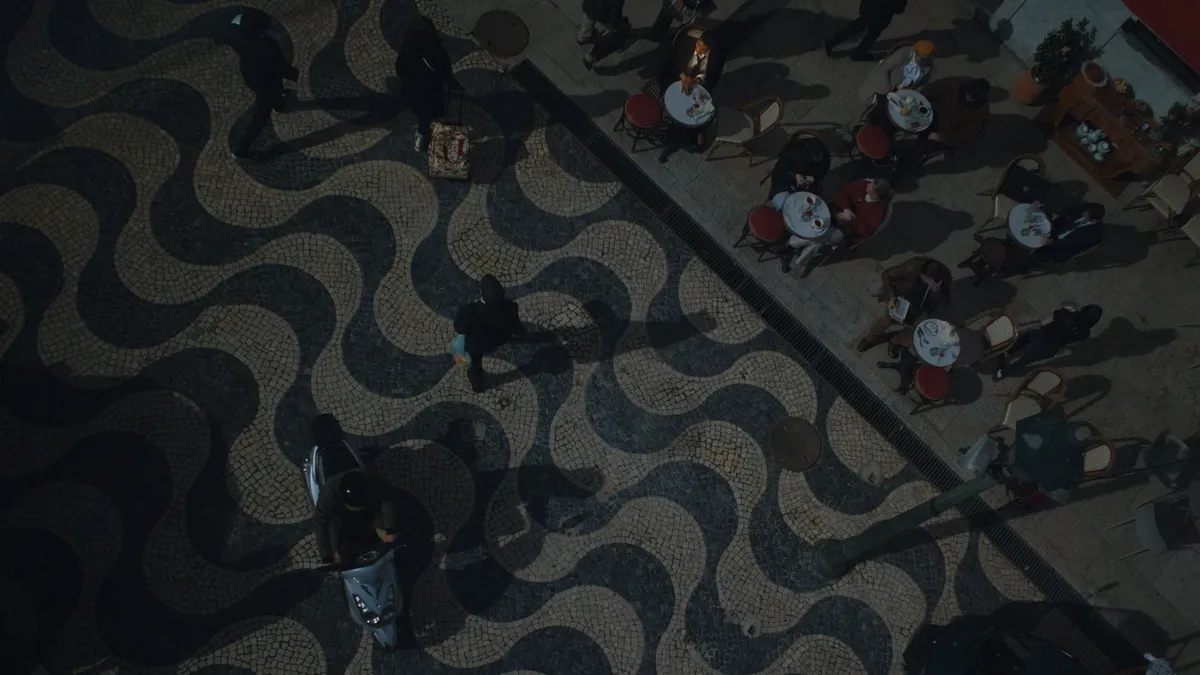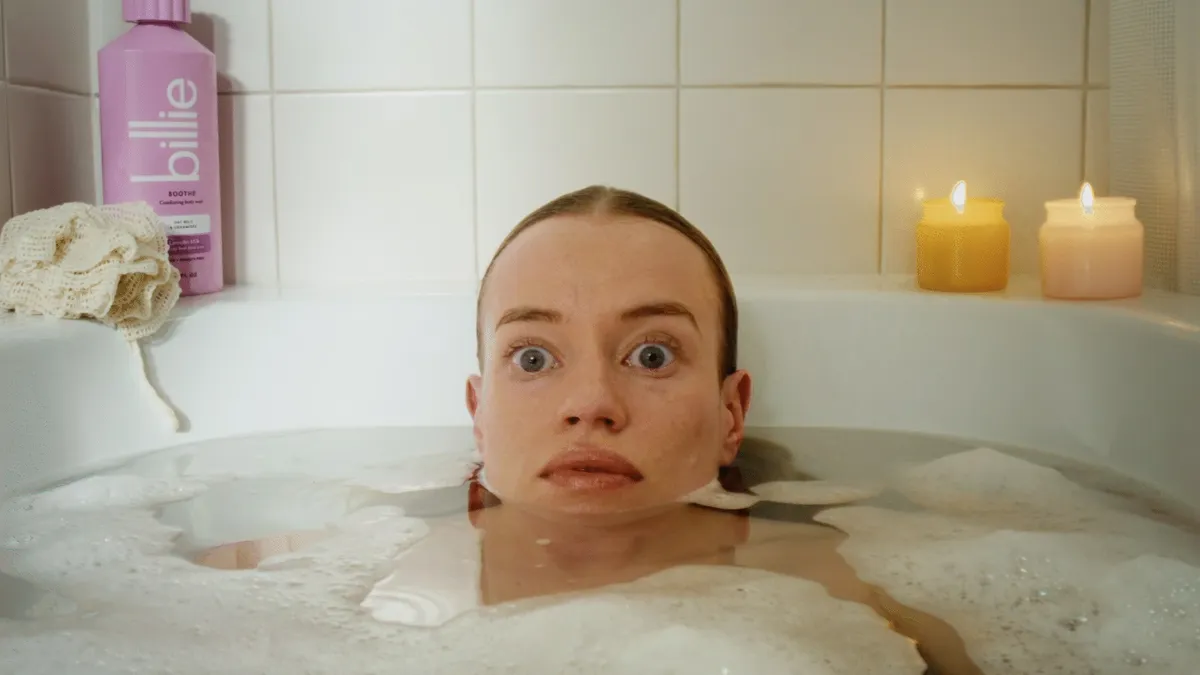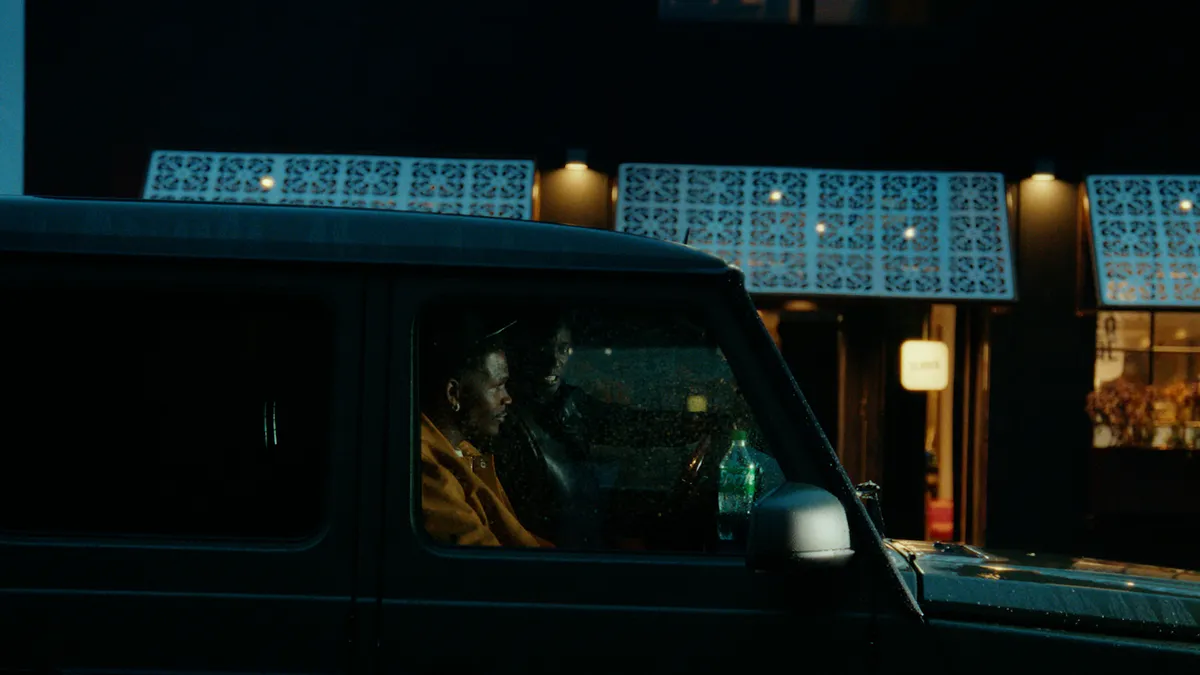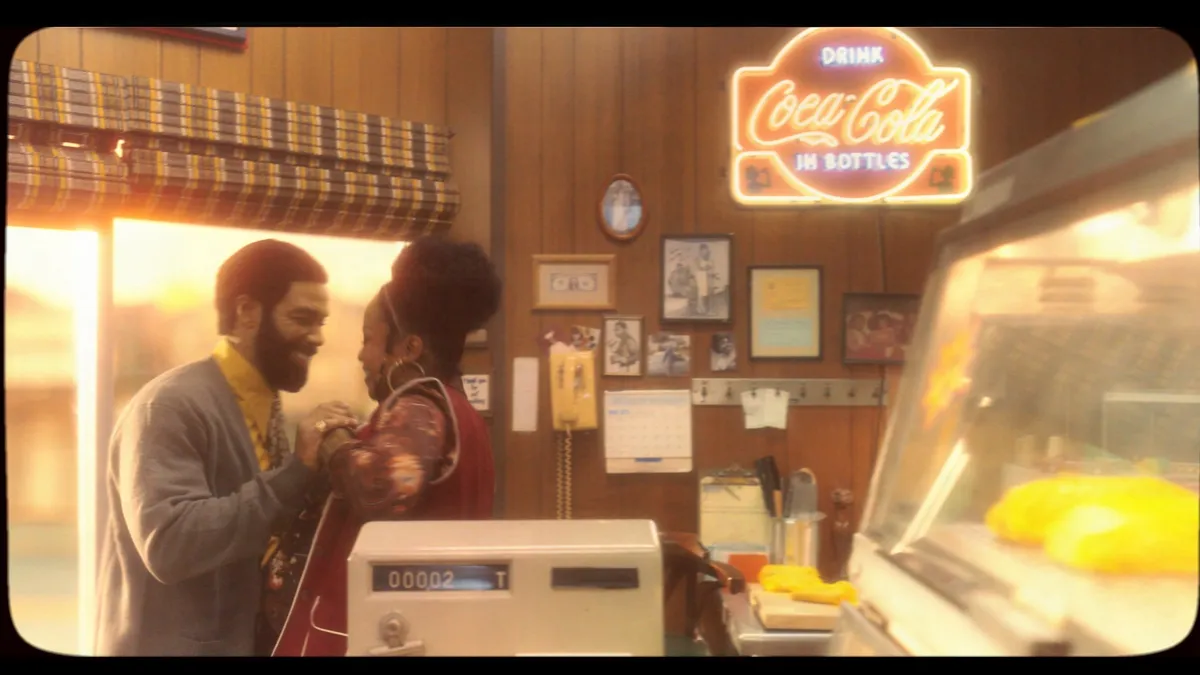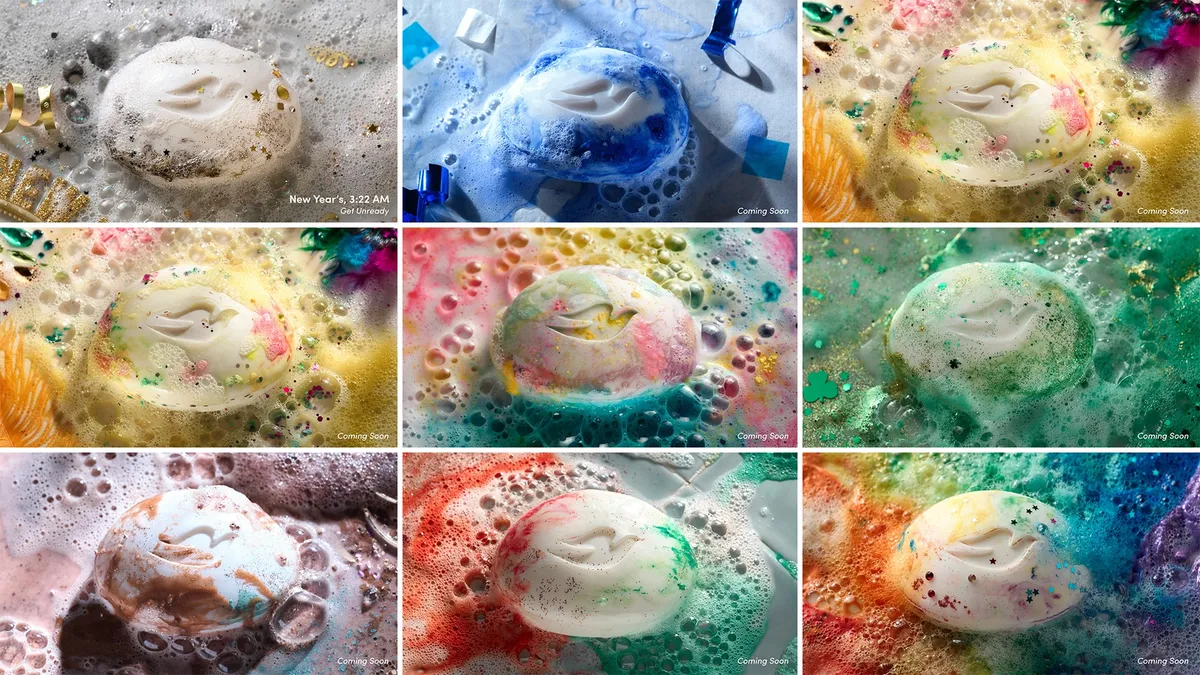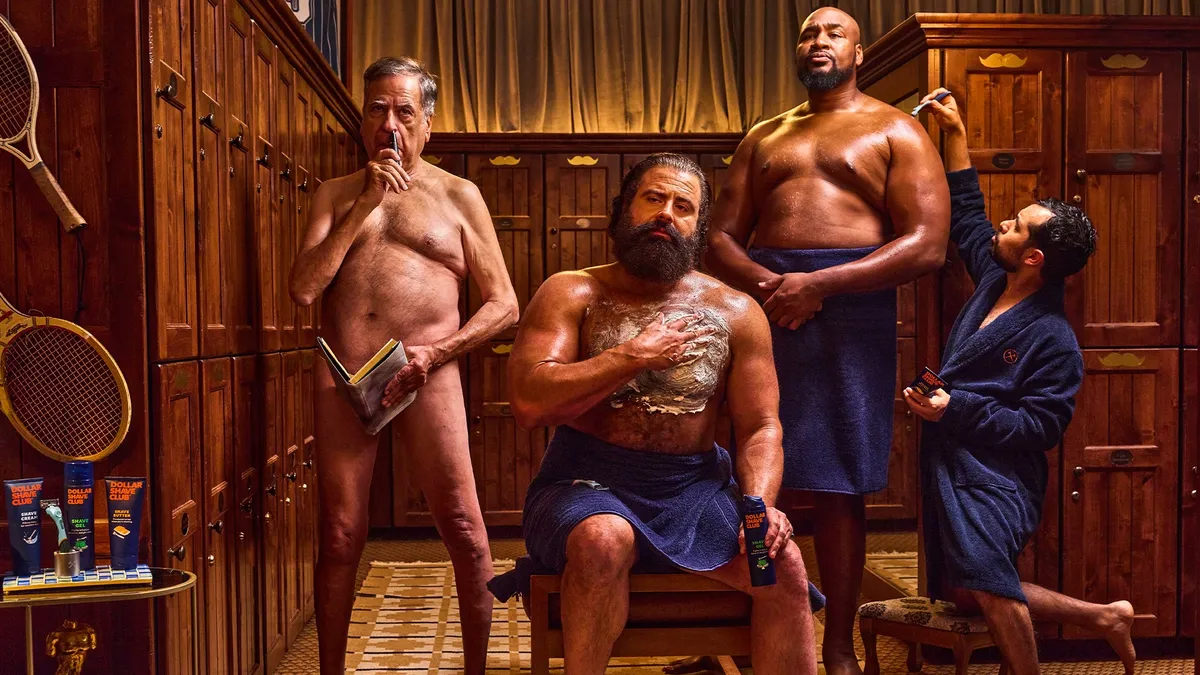Campaign Trail is our analysis of some of the best and worst new creative efforts from the marketing world. View past columns in the archives here.
RXBAR is heading back to its fitness roots with the protein bar's first new campaign in nearly two years. While the Kellogg-owned brand is known for simple ingredients and a "no B.S." philosophy, its latest campaign marks a shift away from spotlighting product in ads and instead positions RXBAR as a broader wellness-focused label.
"Put It All Out There" launched on Feb. 16 with a series of amusing spots portraying individuals' unique fitness pursuits — from a man in a banana suit running a marathon to a couple attempting unconventional yoga poses. A third video depicts a guy dancing so enthusiastically during a hip-hop class that he misses the choreography.
The creative wraps with the tagline "If you got it, flaunt it," tying into RXBAR's tactic of listing a product's ingredients on the front of its packaging. The new campaign embraces transparency, an attitude that has defined RXBAR since its 2012 launch, but was crafted to also empower consumers to "go for it" in 2021 in regards to wellness, according to the company's Vice President of Marketing Julia Adams.
"You don't have to be running a marathon, it can be just getting up and going for a walk in the morning or doing that 10-minute stretch during work," Adams said. "In showing that, product will always be a big component of our marketing messages because we need to tell people what we are and why they should buy us, but where we'll continue to evolve is in the emotional connection with our fans."
From fitness to ingredients and back
RXBAR's spring campaign, which runs through June 30, will run as six- to 30-second clips on addressable and connected TV, online video, digital display ads, social, audio and owned channels. While "Put It All Out There" was designed to reboot the brand's fitness focus, the campaign intentionally embraces a broader definition to include numerous aspects of health.
"When we think about what wellness means to our fans, fitness is a component, but it's also about food and nutrition — hence why they eat RXBARS — and it's about that mindfulness aspect as well," Adams said.
Expanding that focus could make RXBAR feel more accessible to a wider audience than just fitness buffs. To support that expansion, the brand in recent weeks has ramped up content production on its blog, titled "Real Talk," to include nutrition tips, mental health advice, a recipe hub and at-home workouts. Insights from RXBAR customers helped to inspire the content revamp, which also includes partnerships with brand ambassadors such as "The Bachelor" contestant Peter Kraus, dietitian Mia Swinehart and Peloton coach Ally Love.
"Prior to launching this campaign, we went back to talk to our heaviest consumers to find out what motivates them," Adams said. "They're a very intentional group when it comes to thinking about wellness and fitness."
Before the new campaign, RXBAR for the past two years had remained relatively quiet on the advertising front. In 2018, the brand initiated its "No B.S." messaging with rapper and actor Ice-T to put product and simplicity at the forefront. That work by Wieden+Kennedy's Portland studio revolved around posters stating exactly what is in the product or describing the poster itself. Large bold text displayed self-aware messages like "Food," "One blue poster" and "Really big words." A billboard in New York City read "Barely noticeable RXBAR poster in Times Square." The "No B.S." mantra remains a key part of the brand's approach and still appears on its brightly colored packaging, which has helped RXBAR differentiate itself in the crowded protein bar category dominated by Kind and Clif, the latter of which revealed plans this week to ramp up sustainability and double the company's sales to $2 billion.
The Kellogg-owned brand again homed in on clean ingredients with a "Simple Good" effort in 2019 that depicted close-up shots of dates, eggs and nuts, followed by a big influencer push in early 2020 to promote limited-edition flavors.
Building on early social video success
RXBAR's emphasis on simple ingredients was still a vital part of its marketing strategy in early 2020, but the pandemic quickly spurred a more concentrated focus on fitness as the health crisis cut out key opportunities for RXBAR consumption, like after hitting the gym or commuting to work. The bar category overall saw a dip in sales growth since the pandemic's onset, though continued consumer interest in functional ingredients and health may bode well for the category, according to the IRI's State of Snacking report. Within 48 hours of the first lockdowns in the U.S. last spring, RXBAR had turned its Instagram page into an online fitness hub, dubbed RXercise, to help consumers stick with their healthy lifestyles during the health crisis that closed most gyms, according to Adams.
"... Product will always be a big component of our marketing messages because we need to tell people what we are and why they should buy us, but where we'll continue to evolve is in the emotional connection with our fans."

Julia Adams
Vice president of marketing, RXBAR
"The heart of the launch of RXercise was that we wanted to be there for our community, and we really focused on giving them what they lacked at that moment versus pushing our product — and it worked," Adams said.
Since March, the RXercise videos have generated more than 155,000 views, per details shared with Marketing Dive. Now, the brand is looking to build on that initial success in longer-form video on social media by exploring IGTV and TikTok.
"It really gets back to following the consumer trends and where our fans are spending their time," Adams said.
Additional content across buzzy video platforms could extend RXBAR's reach among consumers online, as well as help to solidify its positioning as an approachable, wellness-minded brand. Embracing a broader definition of fitness to include nutrition and mindfulness gives additional legs to "Put It All Out There," especially as some consumers feel the slog of pandemic fatigue after a year of staying at home.
"It's the positivity and the optimism. We want to be there for consumers and our fans however they need us," Adams said. "We're seeing that having those resources accompanied by a dose of positivity is really helpful."



